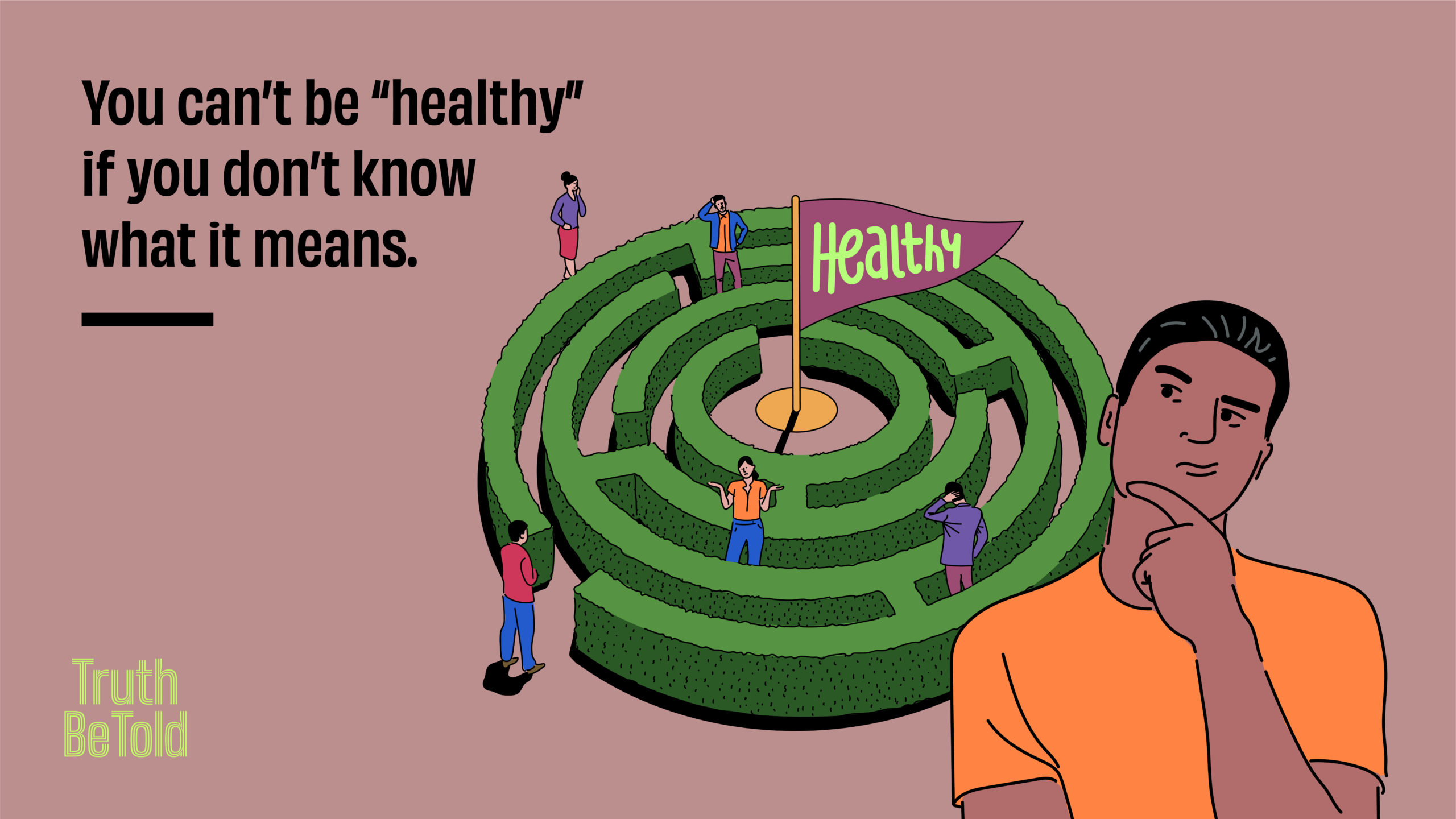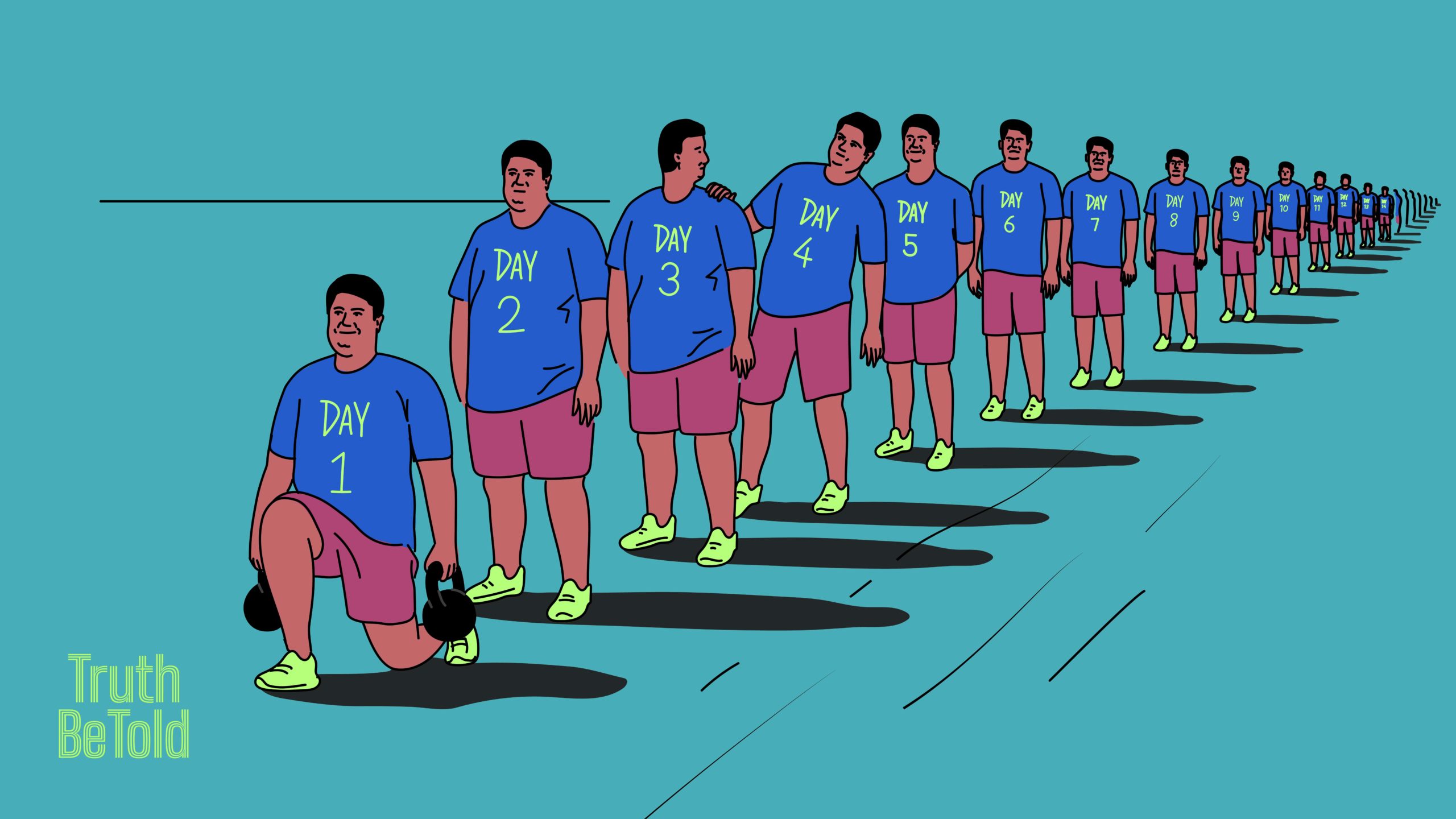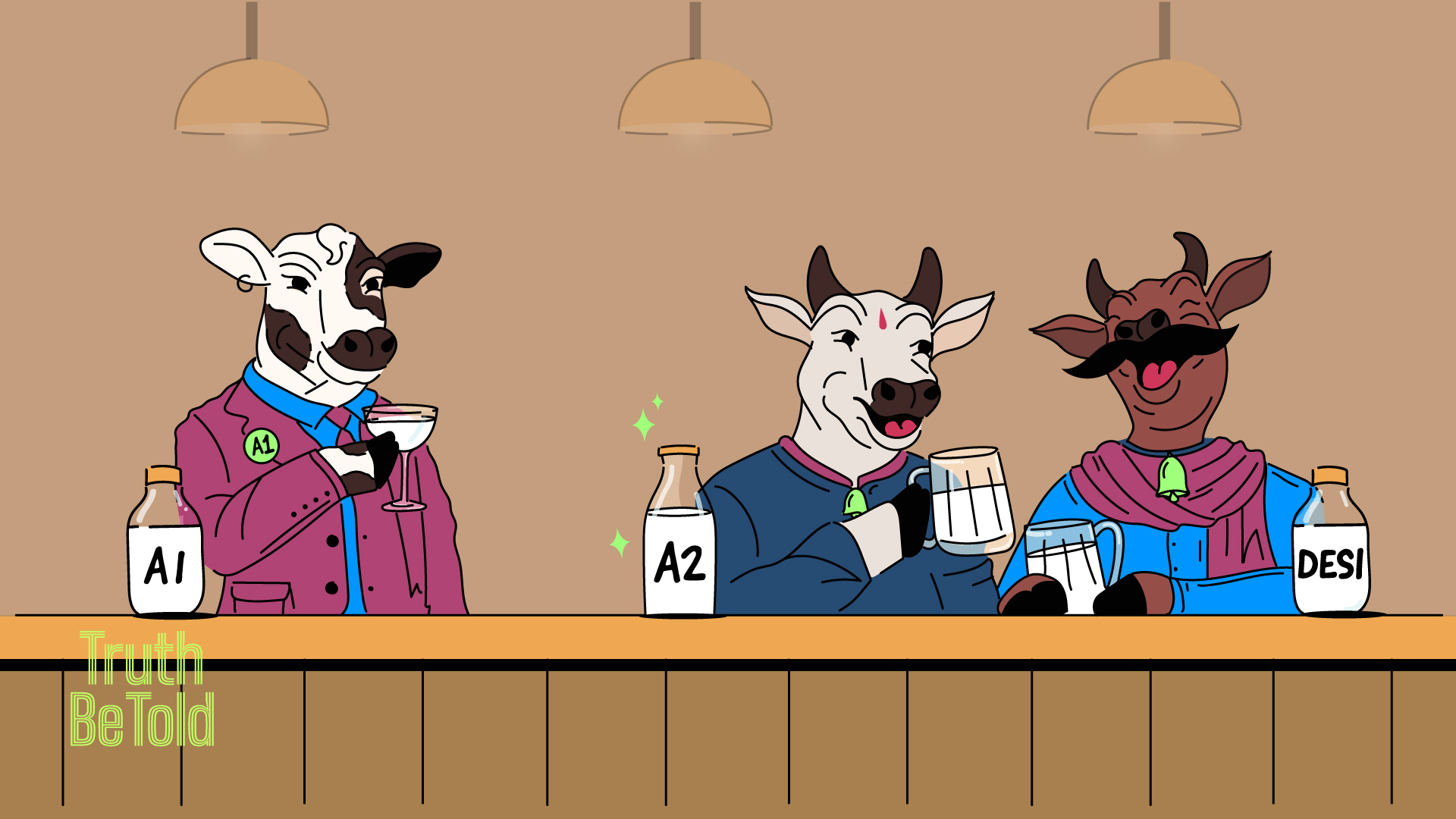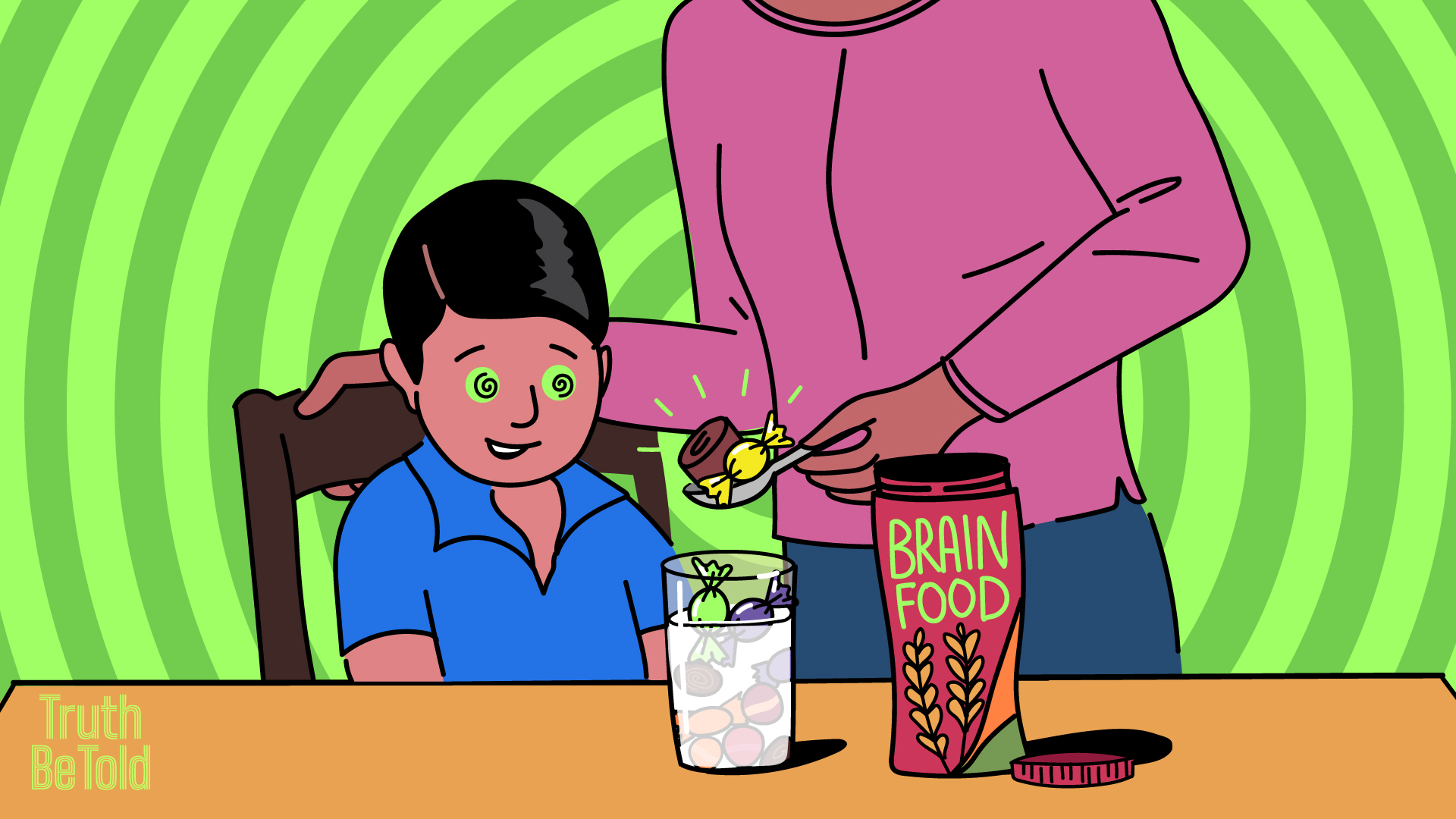Truth Be Told: Looking back, looking forward
The most trustworthy source of food and
fitness journalism in the country.
Dear readers,
It’s me, Samarth, your Editor. Just eight days now until the new year greets us.
A part of me shrugs at these artificial milestones as just that – artificial, yet another part can’t help but see them as offering some structure in our otherwise whirlwind lives. They give us a moment to pause and reflect on our actions, learnings, and how true we’ve stayed to our pre-decided goals.
I’ll save the introspective thoughts for my personal blog, and here, I’ll focus on some key themes we explored in the newsletter this year. I’ll also share links to relevant articles—in case you missed them—and some thoughts on how I’m approaching the coming year.
1. The absolute basics
A few months back, my brilliant design team, while reworking a Truth Be Told story for our Instagram, noted a recurring conclusion in many stories: eat whole grains, complex carbs, healthy fats, and enough protein; do regular exercise, including strength training; drink plenty of water and ensure adequate sleep; avoid ultra-processed foods and cut down on refined sugar.
They’re spot on. This really is the essence of it all. We established it right in the beginning with Truth Be Told’s introductory piece—do read it, which captures the undisputed core of food and fitness.

Think of this as the 80% of the effort that’s essential for a healthy lifestyle. The fundamentals. The stuff that really counts. Little room for argument there. Yet, we often catch ourselves in heated debates over the elusive 20% — the perfect sweetener, the ideal supplement, the most effective exercise.
It’s not that this 20% is insignificant—it has its place, contributing to more tailored and effective fitness journeys. And it’s often through thorny debates that we learn new insights about our bodies and their interaction with the world, spurred by latest research. But, my key point is: don’t let these finer points overshadow the fundamental principles.
The more I learn, the more I see the surprising simplicity of it all. So don’t let anyone tell you fitness is too complex. Translating the knowledge of ‘what to do’ into the practical know-how of ‘how to do it’ is often where the challenge lies.
That’s why some of our articles this year were dedicated to bridging this gap. We wrote about strategies for staying fit while travelling, ways to choose a healthy breakfast at buffets, tips for building an effective exercise routine, managing the occasional ‘cheat’ meal, and how to identify a good dietician.
2. Science? Personal experience?
At Truth Be Told, we believe that health is best understood through a mix of scientific insights and real-world personal experiences. Both matter. Knowledge turns into insight when juxtaposed with the challenges of reality.
That’s why you see a mix of in-depth, science-heavy articles and deeply personal stories in our newsletter. It’s this combination that helps us all understand the bigger picture. Expect this approach to continue.
Some of you have queried whether one person’s experience can universally apply to everyone. The answer is: not always. Some also asked about the universal applicability of scientific findings. The answer is, again: not always. The uniqueness of our bodies means what works for one might not work for others, and vice versa.
Here’s where I play the paradoxical pundit: one moment, I’m asserting the simplicity of fitness, and the next, I’m delving into its complexities. (Who said editing was a walk in the park?)
But then, that’s precisely why we created Truth Be Told: to deal with these complexities, to collectively seek truth, one story at a time.

So a gentle reminder for us all: we don’t have any delusions of delivering the ‘absolute truth’ every week — that’s a myth, an impossible one at that. And we wouldn’t want you to expect that either. But we do commit to delivering our best every week—our most current understanding of the fitness world, the outcome of a continuous process of exploration and improvement.
Here are some of the personal essays we published this year, each narrating a unique health journey. Meet Narayani Basu, who transformed into a runner who celebrates her birthdays with a run; Ankush Datar shares the inspiring tale of his 63-year-old father’s journey into strength training; Shantanu Kishwar narrates the ebbs and flows of his running journey, from apathy to inspiration to obsession and uncertainty; Sachin Kalbag’s extraordinary transformation from 102 kg to 74 kg at 50, a story of resilience against surgeries and illness; Yashi Gupta offers a window into managing fitness alongside ADHD; Aniruddha Mahale provides a moving account of how sculpting a six-pack was about more than just physical fitness.
Personally we think you should share this🤪
3. A good relationship with food
Just this week, over an early morning coffee at Starbucks, Shashank (founder of The Whole Truth) and I found ourselves agreeing on something. A great piece of cake paired with a superb cup of coffee is undoubtedly one of life’s simple pleasures.
Being fitness-conscious doesn’t mean we have to forgo these small joys or feel guilty for indulging in them. In fact, finding the right balance with food is a cornerstone of a fitness-oriented lifestyle. It’s crucial to remember that eating is not just about calorie counting or nutrient tracking; it’s about community and culture too. Integrating this perspective into our fitness approach makes the journey more enjoyable and, importantly, more sustainable.
Take, for instance, that same day. While on the road for work, we consciously skipped the carb-heavy, readily available roadside breakfast. We needed to keep our blood sugar levels stable for a demanding day ahead. But, later in the day, amidst the hustle, I found myself reaching for less healthy snack options just because they were there. And by evening, we were celebrating two colleagues’ birthdays with a fantastic homemade cake.
The point is…sometimes, our food environment is beyond our control, and our eating doesn’t always align with our ideal plans. That’s perfectly okay. What’s key is the choices we make most days, not the occasional slip-ups. Context is everything, especially as you draft those new year resolutions.
We haven’t really dug deep into how food, emotions, and the whirlwind of modern life all go together. I’ve seen it myself — stress or anxiety hits, and my craving for carbs skyrockets, sometimes hanging around for a whole week. It’s tough to say no in the heat of the moment, but getting why it happens helps me fight back. This is why a deeper exploration into the intricacies of emotional eating, stress, and the challenges of contemporary lifestyles can help. And that’s on the agenda for the coming year.
4. Expanding the idea of ‘health’
At the launch of our newsletter, I mentioned our intention to explore the concept of health broadly, extending beyond just physical health to encompass other related areas, including mental health. We’ve made some headway in this direction, like discussing the tongue-tie issue in babies, exploring longevity and disease and tips to find a good therapist.
But there’s so much more to be done in this area, and I admit, it wasn’t as much of a focal point as it could have been. My understanding of its importance deepened dramatically after reading ‘The Myth of Normal: Trauma, Illness & Healing in a Toxic Culture’ by Gabor Mate — and yes, consider this a hearty book recommendation.
Be someone’s secret Santa and gift them this cool newsletter 😝
5. New trends—minus FOMO
While the fundamentals of fitness remain timeless, the health and fitness world is always buzzing with new products and solutions. It’s a rapid pace, often fuelled by technology and market trends, which can sometimes leave us wondering what’s truly beneficial versus what’s just passing hype.
We think this bit is important to cover, but our approach is to provide nuanced information without inducing FOMO. We want to help you figure out which of these innovations might actually be useful for you.

This past year, we’ve tackled topics like A2 milk, blue light glasses, understanding millets, an explainer on Ozempic, insulin testing, a couple pieces on gut health (one, two). I’ve taken note of the feedback you’ve been sending – your emails are always read and considered. I get that you’re looking for clarity on these trends, so expect more of this kind in the upcoming year.
One challenge is figuring out which trends have staying power. For instance, I personally use a Continuous Glucose Monitor (CGM) and have seen improvements in my metabolic health and energy levels.
Is this something worth sharing with you? Definitely. Am I completely sure about the long-term benefits of CGM? Not quite.But does this uncertainty mean we shouldn’t talk about such innovations? Absolutely not.
We’ll keep bringing you authoritative info on these topics, and openly acknowledge any uncertainties we have (an area where we can improve).
6. Deep-dive into the food industry—minus fear-mongering
A common trap in health content is resorting to fear-mongering, which, while attention-grabbing, often lacks real utility.
Our approach—and one we will continue—is to explain the ‘why’ behind various food industry practices: what they mean and why they can be concerning.
For instance, in our discussion on modern-day bread, we broke down the purpose of each ingredient in modern bread-making and why manufacturers add them. We examined the pervasive nature of sugar, shedding light on its historical context during the Bournvita controversy. With topics like artificial sweeteners, we’ve moved away from binary good/bad labels, advocating for a more nuanced view in decision-making. Our recent piece on ultra-processed foods aimed to explain the reasons behind the abundance of chemical additives.

It’s important to discuss these topics to understand the systemic issues within our food environment and the incentives driving them. Our goal is to make the invisible visible, clarifying the reasons behind certain industry practices, thus empowering you to make well-informed decisions. We can’t—and won’t—dictate your choices. Our role is to present the facts, trusting in your intelligence and capacity to decide for yourself.
This is the essence of Truth Be Told’s editorial philosophy: no spoon-feeding. We trust our readers to form their own informed opinions. (And if you ever think we’re straying from this path, please let me know.)
That’s it for now. I am excited about the coming year. So much more to do, so many stories to tell, so many better ways to deliver them. Editing this newsletter remains a great privilege, and the engagement and feedback from subscribers like you make every bit of the effort worthwhile.
Please keep sending your thoughts and insights our way; they are invaluable in guiding us to better meet your needs and interests. Cheers to a year of learning, growth, and great health.
If the Truth Be Told newsletter has helped you make better choices, would you at least tell one friend?🫂
